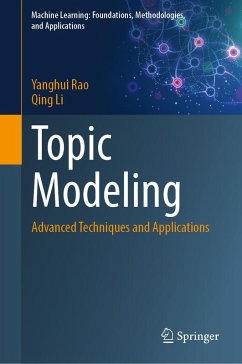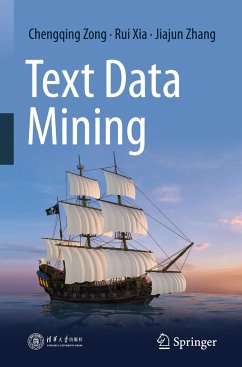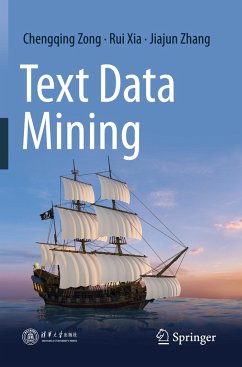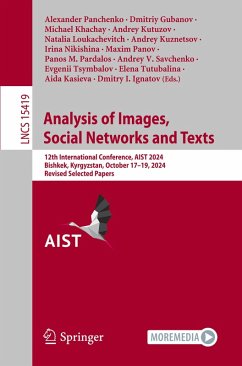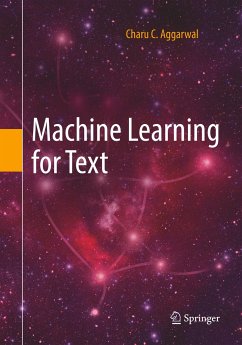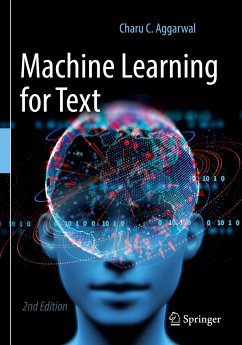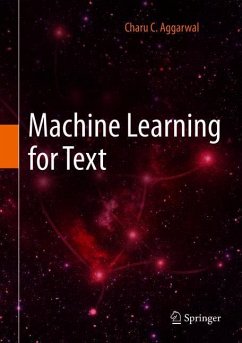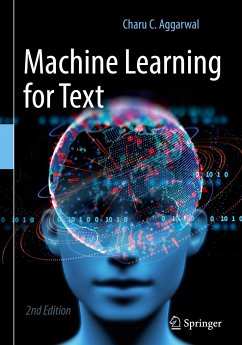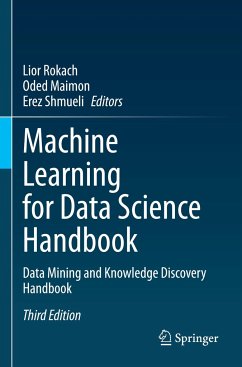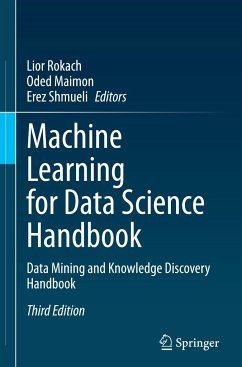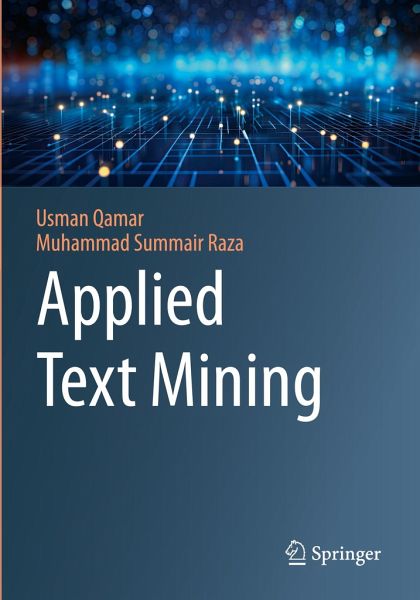
Applied Text Mining

PAYBACK Punkte
29 °P sammeln!
This textbook covers the concepts, theories, and implementations of text mining and natural language processing (NLP). It covers both the theory and the practical implementation, and every concept is explained with simple and easy-to-understand examples.It consists of three parts. In Part 1 which consists of three chapters details about basic concepts and applications of text mining are provided, including eg sentiment analysis and opinion mining. It builds a strong foundation for the reader in order to understand the remaining parts. In the five chapters of Part 2, all the core concepts of te...
This textbook covers the concepts, theories, and implementations of text mining and natural language processing (NLP). It covers both the theory and the practical implementation, and every concept is explained with simple and easy-to-understand examples.
It consists of three parts. In Part 1 which consists of three chapters details about basic concepts and applications of text mining are provided, including eg sentiment analysis and opinion mining. It builds a strong foundation for the reader in order to understand the remaining parts. In the five chapters of Part 2, all the core concepts of text analytics like feature engineering, text classification, text clustering, text summarization, topic mapping, and text visualization are covered. Finally, in Part 3 there are three chapters covering deep-learning-based text mining, which is the dominating method applied to practically all text mining tasks nowadays. Various deep learning approaches to text mining are covered, includingmodels for processing and parsing text, for lexical analysis, and for machine translation. All three parts include large parts of Python code that shows the implementation of the described concepts and approaches.
The textbook was specifically written to enable the teaching of both basic and advanced concepts from one single book. The implementation of every text mining task is carefully explained, based Python as the programming language and Spacy and NLTK as Natural Language Processing libraries. The book is suitable for both undergraduate and graduate students in computer science and engineering.
It consists of three parts. In Part 1 which consists of three chapters details about basic concepts and applications of text mining are provided, including eg sentiment analysis and opinion mining. It builds a strong foundation for the reader in order to understand the remaining parts. In the five chapters of Part 2, all the core concepts of text analytics like feature engineering, text classification, text clustering, text summarization, topic mapping, and text visualization are covered. Finally, in Part 3 there are three chapters covering deep-learning-based text mining, which is the dominating method applied to practically all text mining tasks nowadays. Various deep learning approaches to text mining are covered, includingmodels for processing and parsing text, for lexical analysis, and for machine translation. All three parts include large parts of Python code that shows the implementation of the described concepts and approaches.
The textbook was specifically written to enable the teaching of both basic and advanced concepts from one single book. The implementation of every text mining task is carefully explained, based Python as the programming language and Spacy and NLTK as Natural Language Processing libraries. The book is suitable for both undergraduate and graduate students in computer science and engineering.



